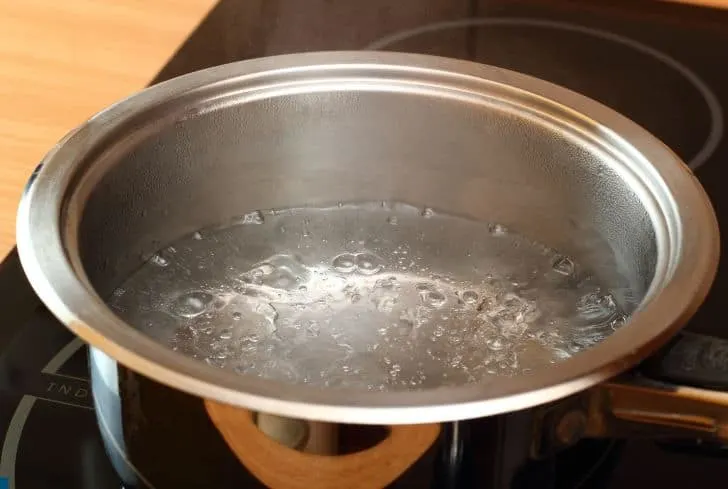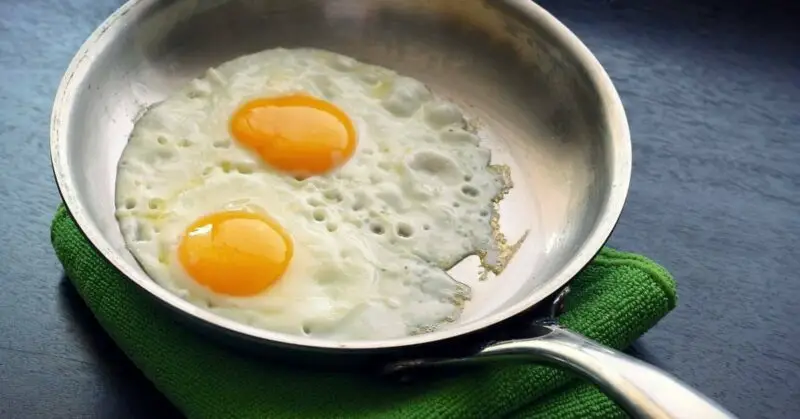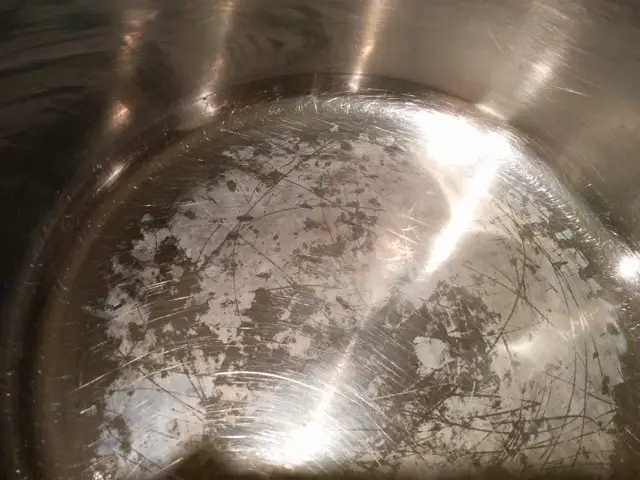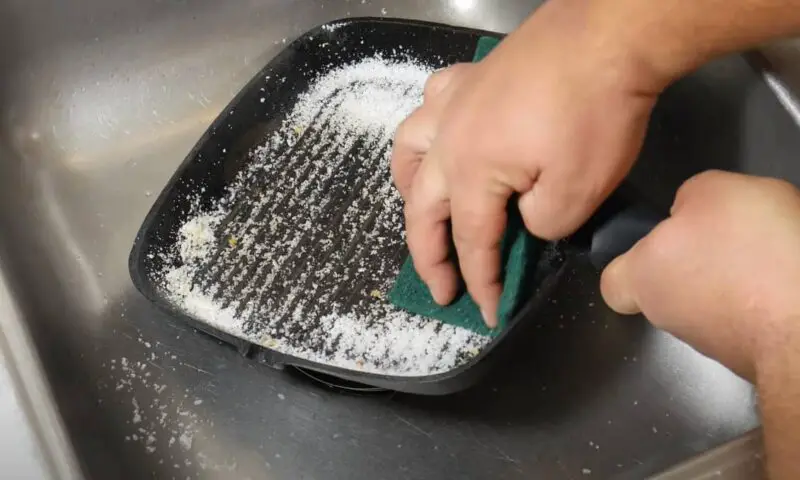The Truth About Boiling Water In An Aluminum Pot
Introduction
The use of aluminum in cookware has become increasingly popular over the years due to its amazing heat conductivity and lightweight nature. With more people opting for aluminum cookware, concerns have been raised about its safety, particularly when boiling water. Is it safe to boil water in an aluminum pot? In this article, we will delve into the research and studies on this subject to help you make an informed decision.
What is Aluminum?
Aluminum is a metallic element that is known for its lightness and malleability. It is very abundant in the earth’s crust, which makes it an economical material for various applications. This silver-white metal is often alloyed with other metals such as copper and magnesium to enhance its properties.
Aluminum is used in many industries, from construction to transportation, packaging, and cooking. One of the reasons why aluminum is preferred in cookware is because of its excellent heat conductivity and lightweight nature.
Aluminum Cookware
Aluminum cookware comes in various forms, including pots, pans, and baking sheets. They are affordable, easy to clean, and come in different designs that are aesthetically pleasing. However, there are some concerns about their safety.
One of the drawbacks of using aluminum cookware is that they react with acidic foods such as tomatoes or vinegar. This can cause the cookware to leach into your food and alter its flavor. Additionally, if you scratch the surface coating during washing or while cooking, aluminum can leach into your food.
Caring For And Maintaining Aluminum Cookware
To extend the lifespan of your aluminum cookware and prevent it from leaching into your food or boiling water:
- Hand wash your pots or pans with a gentle soap and a non-abrasive scrubber to prevent scratches.
- Do not use harsh chemicals and scouring pads to clean the surface of your aluminum cookware.
- Store your pots and pans carefully to avoid scratches or dents on their surfaces.
What Happens When You Heat Aluminum?
As with all metals, aluminum undergoes changes in structure when it is heated. Over time, this can lead to pitting and discoloration of the surface. If you heat aluminum cookware for too long, it will eventually become less effective at conducting heat.
When aluminum is heated, there is also a risk of it leaching into food or water. This can happen when the surface of the pot or pan becomes scratched or damaged, exposing the metal underneath.
The Risk of Leaching
The leaching of aluminum into food or water is more likely to occur when cooking acidic foods such as tomatoes or vinegar. This is because the acid can react with the metal and cause it to dissolve. However, boiling water in an aluminum pot is generally considered safe if you take precautions.
The Dangers of Consuming Aluminum
Consuming too much aluminum can be harmful to your health. According to research, long-term exposure to high levels of aluminum has been linked to several health issues such as:
- Brain disorders such as Alzheimer’s disease
- Bone disorders such as osteoporosis
- Anemia
- Kidney damage
- Respiratory issues
However, most people are not at risk of developing these health problems from cooking with or in aluminum cookware.
Can Cooking With Or In An Aluminum Pot Cause These Negative Health Effects?
While there has been some research linking aluminum exposure to negative health effects, there is no conclusive evidence that cooking with or in an aluminum pot causes harm.
According to the Alzheimer’s Association, there is no clear evidence that suggests aluminum is a contributing factor in developing Alzheimer’s disease. Research shows that aluminum that enters the brain does not leave it, hence it does not account for aluminum concentration seen in those with Alzheimer’s.
However, It’s appropriate for consumers requesting clarification on this topic to reduce their exposure by limiting the use of acidic foods in aluminum cookware.
How Safe Is It To Boil Water In An Aluminum Pot?
Boiling water in an aluminum pot is generally considered safe. However, you should take some precautions to minimize potential exposure to toxins.
Risks and Benefits To Boiling Water In An Aluminum Pot
There are both risks and benefits associated with boiling water in an aluminum pot. One of the benefits is that aluminum conducts heat quickly, allowing water to boil faster than other metals like stainless steel. However, if the surface of the pot is damaged or scratched, there may be a risk of leaching into your water or other beverages.
Short-Term Risks Vs. Long-Term Risks
The short-term risks of consuming small amounts of aluminum from boiling water in an aluminum pot are minimal. However, long-term ingestion of large amounts of aluminum can cause health problems such as kidney damage and bone disorders.
How To Reduce Exposure To Potential Toxins
To reduce exposure to potential toxins when boiling water in an aluminum pot:
- Avoid leaving the pot uncovered for extended periods.
- Use distilled or filtered water instead of tap water.
- Avoid using acidic additives such as lemon juice or vinegar in the water.
- Discard any water that has been sitting in an aluminum pot for an extended period.
Recommended Precautions, If Any
The United States Food and Drug Administration (FDA) has approved the use of aluminum cookware in the kitchen. However, if you have any concerns about using aluminum cookware, there are various alternative materials that you can use such as stainless steel, cast iron, glass, or ceramic.
Studies On Safety
Several studies have been conducted to determine the safety of boiling water in an aluminum pot. A review of these studies has shown that there is limited evidence suggesting that aluminum cookware poses a health risk. The studies found no conclusive evidence that suggests a link between consuming aluminum within everyday amounts and developing Alzheimer’s disease.
Research That Shows No Links Between Alzheimer’s Disease And Cooking With Or Utilizing Aluminum Cookware
A study conducted by the Alzheimer’s Association showed no evidence to suggest that cooking with aluminum cookware increases one’s risk for developing Alzheimer’s disease. The study concluded that exposure from it does not cause harm outside certain occupational settings.
Studies Demonstrating No Toxicity From Normal Use
Another study conducted by the World Health Organization (WHO) reported that cooking with aluminum pots and pans was not a significant contributor to daily dietary intake of aluminum. The study concluded that normal use of household products made from aluminum does not pose a threat to human health.
Aluminum Alternatives
If you prefer not to use Aluminum cookware when boiling water or cooking other types of food, there are several other materials that you can consider:
- Stainless steel
- Cast iron
- Glass
- Ceramic
Alternatives Pros And Cons
- Stainless Steel: Durable, easy to clean, and doesn’t react with acidic foods. It may, however, take longer to heat up than aluminum.
- Cast Iron: Durable and can withstand high temperatures, but needs careful maintenance so as not to rust or corrode
- Glass: Great material for boiling water or cooking food that requires gentle heat. However, it may break if dropped or subjected to sudden temperature changes.
- Ceramic: Durable and retains heat well but can be heavy and tempered by abrupt heating-cooling sequences
Recommendations From Experts
According to many experts, the safest cookware choices include stainless steel pots and pans with copper or aluminum cores as well as cast iron Dutch ovens. Copper cookware must have a tin coating for safety, given the high corrosive property of copper.
Conclusion
Boiling water in an aluminum pot is generally considered safe. Although there is some risk of leaching into food or water when cooking with aluminum cookware, it is not significant enough to cause harm when used appropriately. To reduce potential exposure to toxins from aluminum cookware, use distilled water when boiling your water. If you have any concerns about using aluminum cookware in your kitchen, alternative materials such as stainless steel, ceramic, cast iron or glass are available for purchase worldwide.
Frequently Asked Questions
Is it true that boiling water in aluminum is harmful to your health?
There has been a lot of debate about the safety of boiling water in aluminum, but rest assured, it is perfectly safe. The concerns about aluminum leaching into the water have been found to be negligible. In fact, using a high-quality aluminum pot can provide even heating and is a great option for cooking.
What are some benefits of boiling water in an aluminum pot?
Using a quality aluminum pot to boil water has several benefits. For one, aluminum pots conduct heat quickly and evenly, allowing for an even boil. Additionally, they are very durable and long-lasting, making them an excellent choice for frequent use. Furthermore, they are typically affordable and easy to clean.
Are there any precautions I should be taking when boiling water in aluminum?
While it is generally safe to boil water in aluminum pots and pans, there are some things to keep in mind. For instance, if you’re cooking acidic foods or highly salty ingredients like tomato or citrus, it’s best not to use aluminum as these foods can react with the metal. Additionally, you don’t want to leave the pot on the stove for an extended period since this may cause discoloration.
What is the impact of using stainless steel versus aluminum to boil water?
Both stainless steel and aluminum pots work well for boiling water. However, there are a few differences worth considering when choosing which one to use. Stainless steel may take longer for the water to boil since it doesn’t conduct heat as well as aluminum does. On the other hand, stainless steel usually doesn’t react with acidic foods or harsh cleaning agents like bleach. It’s ultimately up to your personal preference which one you choose.






